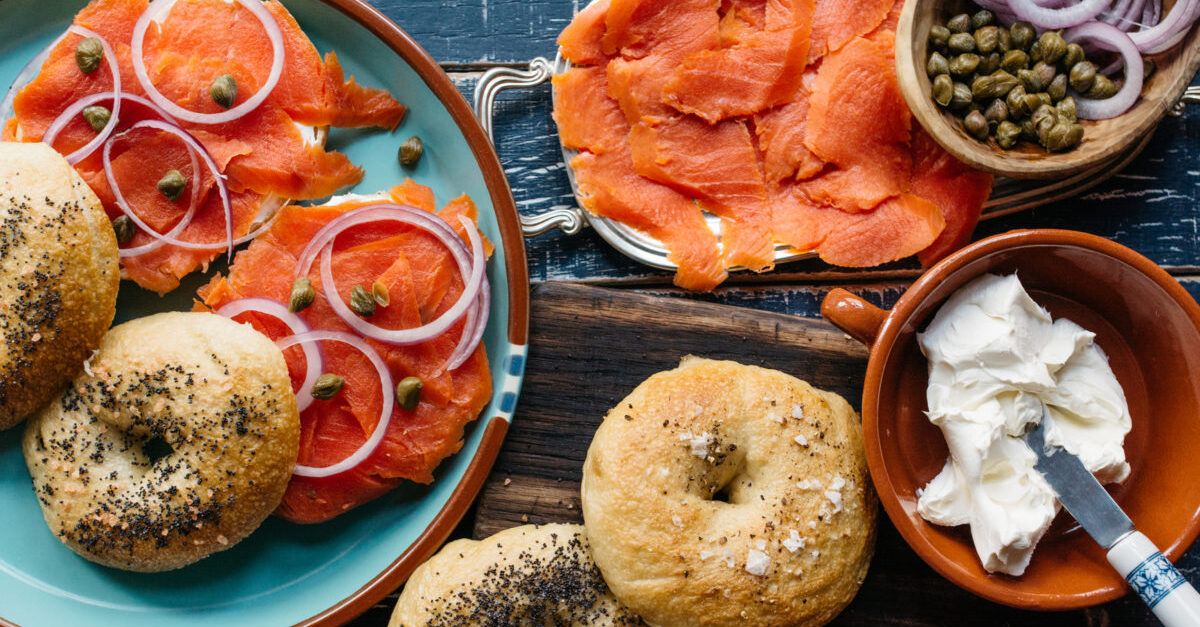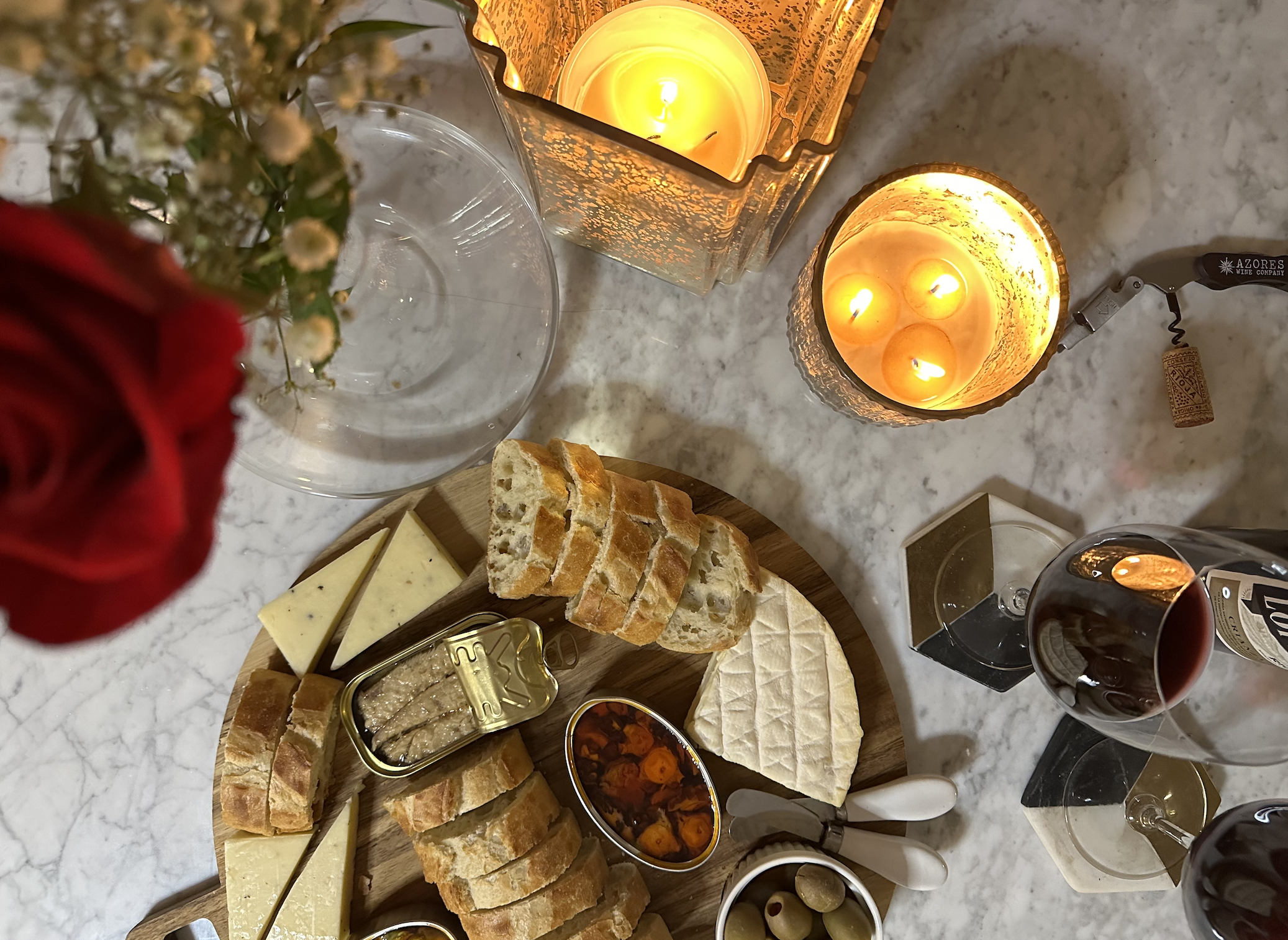
How does the MSC support fishing communities?
Welcome to week three of my campaign with the Marine Stewardship Council for National Seafood Month. Last week, we chatted about how the MSC ecolabel supports sustainable fisheries and the preservation of the marine environment. Today, we’re shifting gears to focus on the people behind the label and how the MSC supports fishermen and fishing communities.
In order to best understand the MSC from the fisherman’s perspective, I went ahead and spoke to one!
I had the chance to speak with Tiare Boyes, a halibut fisherman from British Columbia and an MSC Ambassador. Tiare and I spoke about her work in the seafood industry and marine conservation, how those two worlds complement each other, and how the MSC is supporting sustainable fisheries like the one she works in.
Check out the full interview down below!

In conversation with Tiare Boyes
How did you first get involved in fishing and marine conservation?
I’ve been involved in these two subjects since before I was born. Both my parents always volunteered for stream keeping. I was in my mother’s womb when she went to seaworking and she had me on her back when we were out on the fishing boat. So I’ve been involved in fisheries and conservation since the very beginning. When I first started walking, she’d take me to stencil little salmon shapes on the storm drains, which was a campaign to help people connect with what they’re putting into their waterways, which really affects our salmon bearing streams, and everything goes into our ocean. Because I feel like there’s that huge disconnect. So it’s been my entire life. It’s never not been a part of me.
How do you think that growing up in a fishing family shaped the way you view seafood and marine conservation today?
I have no way of knowing who I would have been without that influence in my life, because it’s been my entire life. But in the fishing community that I grew up in, there was a really deep understanding that it’s a privilege to be able to go to sea. And it’s a privilege to be able to harvest clean and healthy seafood.
There’s a huge sense of freedom that comes with working on the ocean, being your own boss, you know, in the fishery that I work inhere’s nobody looking over your shoulder, if you don’t work hard and put in the effort, then you don’t get your paycheck at the end of the day.
People who spend that much time in nature, immersed in nature and out in the incredible wild, on the wild west coast of Canada, we know that there’s no separation between the natural world and the human world, it is exactly the same. We rely on our coastal ecosystems to keep the food on our table and to keep a roof over our heads. And we know that to overharvest, or to let other people pollute these areas, it means that we’re cutting off our own lifeblood.
So I feel really lucky to have first hand knowledge of the fishing industry. Because I know there’s a ton of misconceptions out there. Very few people have had that first hand experience. So I feel very lucky to know what’s going on out there. At least on the boats I’ve worked on and to be able to share that message with people who can’t.
What’s it like working in marine conservation and fishing? Do the two complement each other or ever conflict with one another?
For me, there is no other option. In order to be a fisherman, I need to be an environmentalist, I need to be working in the conservation sector. And in order to be an environmentalist or conservationist, I need to acknowledge that one of the lowest impact forms of animal protein comes from species that feed naturally in the ocean that can be harvested with low fuel requirements. It uses no fresh water, as no fertilizers to our freshwater ecosystems doesn’t clear and destroy huge tracts of natural ecosystems, changing it into a human made ecosystem. And it can be one of the least impactful ways of eating – and when I say least impactful, I mean, measured in water use, energy use, pollution, and greenhouse gas emissions compared to a terrestrial protein.
I mean, we can’t rely on a single source of protein to fight world hunger, we need to diversify our food systems, because a diverse system is the most resilient system. I think, especially today, we need resiliency in everything we do.
Fish for food security is something that’s really important to both of us. Can you tell me a little bit more about why seafood is so important to food security for you and some of the work you’ve done in this space?
I think seafood is consistently overlooked when discussing food security issues. As we work towards enhancing food security, we need to keep options in mind that consider the relative environmental impacts of food production.
The practical solution to food security problems should involve a balance between agriculture and sustainably sourced marine protein. We can’t feed the world safe, nutritious food and meet all of the Sustainable Development Goals without sustainably caught seafood. So we need to start talking about it. And we need to start involving people who are working on the ground with these high level policy decisions.
I firmly believe we’re both living in Canada, and [our country has] the opportunity to be a world leader. But there’s a lot of hurdles that are put in front of harvesters and we need more funding for peer reviewed for bust science, more frequent stock assessments and better incentives, not subsidies for fish harvesters so that we can do our part to lead the way in not only feeding people, but making sure that our marine ecosystems are being respected and are being studied as well.
You work with the MSC, can you talk a little bit more about what it takes to obtain an MSC certification and how you think the MSC is supporting fishing communities?
Well, to get the MSC certification is very difficult. It’s a lot of paperwork. It’s a lot of hard work. It’s a multi year program. So it’s not an easy process. It’s not just given out to people who asked for it.
In the fishery that I work in – the wild Pacific halibut fishery, our fishery underwent all of these changes. You know, we used to have very high bycatch levels, and we used to exceed the total allowable catch for certain species. And after 2006, after the integrated groundfish program, where we now have 100% electronic monitoring, we have to retain species that have very high levels with mortality, we count all the fish and then once they’re offloaded there’s 100% dockside monitoring, so there’s no way to cheat the system. And so not only do we have good stock assessment and good fisheries management, it’s enforced as well. So you can’t you can’t cheat the system.
Since these policies have been put in place, we’ve never exceeded the total allowable catch of any of the species that are hosted because it’s a multispecies fishery. When we achieved our Marine Stewardship Council certification we were the first on the west coast of Canada in British Columbia. And it really helped support the fishermen to reward them for these good choices that we made because it was a collaboration between fish harvesters, federal provincial governments, as well as a conservation sector to bring these changes to our fishery into place. But nobody knew about it outside of the fish harvesters and the people who are working with us.The Marine Stewardship Council, through the certification, really helped sort of get that message out there of the good work that we’re doing. And you know, we’re not done doing good work I don’t think you should ever rest on your laurels – you need to continue to strive to be better and that’s the recertification process. Every every few years, we have to recertify and we have to meet some of the recommendations from the Marine Stewardship Council so it not only supports fishermen to make the right choices but it supports them to continue to make the right choices into the future
What do you think is the future of the fishing and seafood industry?
I think the future is female, I think the future is female led. That’s what I’m hopeful for. I’m hopeful that there’ll be more female voices in the conversation around fisheries and sustainable fisheries. I’m hopeful that there’ll be more investment from governments around the world in peer reviewed scientific stock assessments because we can’t harvest fish without knowing what is going on in our oceans. I’m hopeful that world leaders will commit to climate change goals so that our ocean doesn’t continue along this path of acidification and pollution that’s running off from, you know, our, our cities and our agricultural landscapes.And I’m hopeful that we will have a future that is fishy, and we’ll be able to harvest fish.
I’m also a diver, I’m an underwater photographer, and I do underwater videography. The best part of my day is being able to swim through a kelp forest with a school of Black Rock fish. And that is what I see our future being. But there’s a lot of hard work, we can’t take our foot off the gas pedal. And we need to celebrate the good work that has been done already.
But we need to constantly do better, we can always do better.
Follow Tiare on Instagram and check out her website to stay up to date with her work in sustainable fisheries and seafood!



